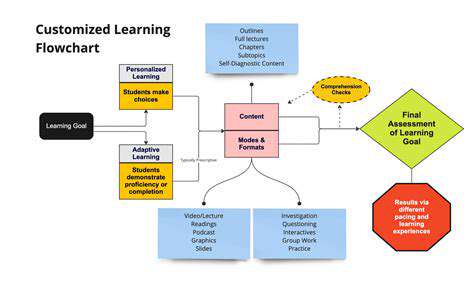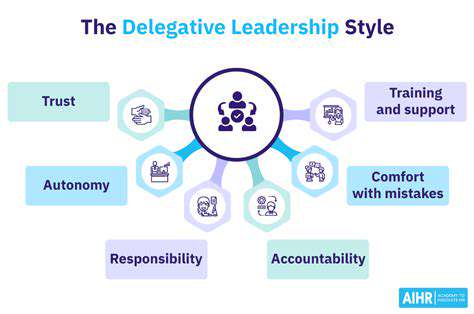Career Path in Cybersecurity: A Guide

Penetration Tester
Penetration testers, also known as ethical hackers, play a crucial role in identifying vulnerabilities within a system. They use various tools and techniques to simulate real-world attacks, aiming to exploit weaknesses before malicious actors can. This involves meticulous planning, execution, and reporting of findings. A successful penetration tester possesses a deep understanding of security protocols, operating systems, and common attack vectors. Their goal is to enhance the overall security posture of an organization by proactively uncovering potential threats.
Thorough documentation is a key aspect of the role, detailing the methodologies used, the identified vulnerabilities, and the potential impact of each. This comprehensive reporting allows security teams to prioritize remediation efforts and effectively patch potential entry points for malicious actors. Furthermore, penetration testers often work closely with development teams to implement necessary security measures and ensure the long-term robustness of the system's defenses.
Security Analyst
Security analysts are responsible for monitoring and analyzing security events, identifying potential threats, and responding to security incidents. They often utilize security information and event management (SIEM) systems to collect and process data from various sources, searching for anomalies and patterns that could indicate malicious activity. Their role is critical in maintaining the integrity and confidentiality of sensitive data.
A key part of the role is incident response. Security analysts are trained to respond to security breaches in a timely and effective manner, minimizing the damage caused by attackers. They work to contain the threat, investigate the cause, and implement measures to prevent future incidents. This requires a blend of technical expertise, problem-solving skills, and a calm demeanor under pressure.
Security Architect
Security architects are responsible for designing and implementing the overall security strategy for an organization. Their role encompasses a wide range of responsibilities, from defining security policies and procedures to selecting and configuring security tools and technologies. They must consider the organization's specific needs and resources, ensuring that the chosen security measures are both effective and cost-efficient. This involves a deep understanding of various security domains, including network security, application security, and data security.
A critical aspect of this role is designing secure infrastructure and systems that meet the organization's compliance requirements and business objectives. They need to collaborate with various stakeholders, including developers, operations teams, and executives, to ensure that security is integrated into all aspects of the organization's operations. This includes the design of secure systems, networks, and applications.
Security Engineer
Security engineers focus on the practical implementation and maintenance of security technologies and systems. Their work often involves configuring firewalls, intrusion detection systems, and other security tools to ensure the protection of network infrastructure and applications. This requires a strong technical understanding of security principles and a practical approach to problem-solving. Their role is essential in maintaining the organization's security posture on a daily basis.
A significant part of a security engineer's responsibilities includes maintaining existing security systems, ensuring their continued functionality, and responding to security alerts. Proactive maintenance and regular updates are critical to avoid vulnerabilities and mitigate risks. They also play a crucial role in troubleshooting security issues and collaborating with other teams to resolve them quickly and effectively.
Management and Leadership Tracks: Shaping the Future of Cybersecurity

Developing Managerial Skills
Effective management hinges on a blend of strong communication, strategic planning, and delegation. Developing these skills requires consistent effort and a willingness to learn from both successes and setbacks. Managers must also cultivate empathy and the ability to motivate and inspire their teams. This process includes understanding individual strengths and weaknesses within the team dynamic, and tailoring communication styles accordingly. Furthermore, learning how to adapt to changing circumstances and effectively manage conflict is crucial for long-term success.
A key aspect of developing managerial skills involves continuous learning and professional development. Staying abreast of industry best practices and emerging trends is essential. This might involve attending workshops, conferences, or pursuing relevant certifications. Consistent self-reflection and feedback from peers and superiors is also vital for identifying areas needing improvement and refining existing strengths. Ultimately, developing managerial skills is an ongoing journey, not a destination.
Leading with Vision and Strategy
Leaders who possess a clear vision and a well-defined strategy can inspire and motivate their teams to achieve ambitious goals. This involves not only articulating a compelling vision but also breaking it down into actionable steps and ensuring that the team understands and embraces the roadmap. Communicating the strategy effectively across all levels of the organization is paramount.
Strategic thinking is crucial for anticipating potential challenges and adapting to changing market conditions. Effective leaders are adept at identifying opportunities, making informed decisions, and building resilience into the organization. This proactive approach helps the team navigate uncertainties and emerge stronger in the face of adversity. It also promotes a culture of innovation and allows the team to embrace new ideas and approaches.
Building High-Performing Teams
Creating a high-performing team goes beyond simply assembling talented individuals. It necessitates a strong foundation of trust, open communication, and mutual respect. Fostering a collaborative environment where individuals feel valued and empowered to contribute their unique perspectives is essential. This involves actively listening to team members, recognizing and appreciating their contributions, and resolving conflicts constructively. Creating a safe space for open dialogue and feedback is vital.
Effective leaders understand the importance of establishing clear roles and responsibilities, while also encouraging individual growth and development. By empowering team members and providing them with the resources they need to succeed, leaders can unlock their full potential and drive collective performance. This includes providing opportunities for training, mentorship, and skill development.
Building Your Cybersecurity Career: Essential Skills and Training
Foundational Cybersecurity Knowledge
Understanding the fundamental concepts of cybersecurity is crucial for any aspiring professional in this field. This encompasses comprehending various threats like malware, phishing, and social engineering, as well as the importance of strong passwords, secure network configurations, and data encryption. A solid foundation in these areas provides a strong base for learning more advanced cybersecurity techniques and tools.
Gaining proficiency in essential security principles, including risk assessment, vulnerability management, and incident response, is equally vital. These principles are the building blocks for effectively identifying, mitigating, and responding to security breaches, ultimately bolstering the overall security posture of organizations.
Hands-on Experience and Practical Skills
Theoretical knowledge is only half the battle in cybersecurity. Practical experience is paramount. This involves hands-on activities such as penetration testing, vulnerability scanning, and ethical hacking. These activities not only enhance practical skills but also provide a deeper understanding of real-world security challenges and how to address them effectively.
Furthermore, developing skills in using various cybersecurity tools and software is critical. Familiarizing oneself with industry-standard tools like Wireshark, Nmap, and Metasploit is essential for conducting security assessments and conducting incident response effectively. Proficiency in these tools is highly valued by employers.
Staying Updated with Industry Trends
Cybersecurity is a rapidly evolving field, with new threats and technologies emerging constantly. Staying updated with the latest trends and advancements is crucial for professionals in this domain. This involves continuously learning about emerging threats, new vulnerabilities, and innovative security solutions.
Regularly attending industry conferences, webinars, and workshops, as well as staying engaged with online communities and publications, is vital. Keeping abreast of the latest news and developments in cybersecurity ensures practitioners can respond effectively to ever-changing threats and adapt to new technologies.
Certification and Education Pathways
Formal certifications are highly valued in the cybersecurity industry, demonstrating a commitment to professional development and expertise in specific areas. Certifications like Certified Ethical Hacker (CEH), Certified Information Systems Security Professional (CISSP), and CompTIA Security+ are well-recognized credentials that can significantly boost career prospects.
Pursuing formal education in cybersecurity through degree programs or specialized courses can also greatly enhance career opportunities. A structured curriculum provides a comprehensive understanding of cybersecurity principles, techniques, and tools. This can provide a strong foundation and expertise in the field.
Networking and Building Relationships
Networking within the cybersecurity community is essential for career advancement. Connecting with professionals, attending industry events, and participating in online forums can provide valuable insights, opportunities, and mentorship. Building relationships with peers and mentors can provide guidance and support throughout a career.
Networking helps professionals stay updated on current trends, learn about new technologies, and gain access to potential job opportunities. Building a strong professional network is crucial for navigating the complexities of the cybersecurity industry and achieving long-term success.
Read more about Career Path in Cybersecurity: A Guide
Hot Recommendations
- How to Stay Productive While Working Remotely
- Tips for Managing Conflict with Coworkers
- Entrance & Certification Exams (升学考试)
- How to Improve Your Storytelling Skills (Speaking)
- How to Find Profitable Side Hustles
- Tips for Preparing for the TOEFL iBT Home Edition
- Guide to Switching Careers from [Industry A] to [Industry B]
- How to Run an Effective Hybrid Meeting
- Tips for Marketing Your Side Hustle on Instagram



![How to Ace Your Next Job Interview [Tips & Tricks]](/static/images/32/2025-05/BeyondtheInterview3ABuildingYourNetworkandFollowingUp.jpg)







